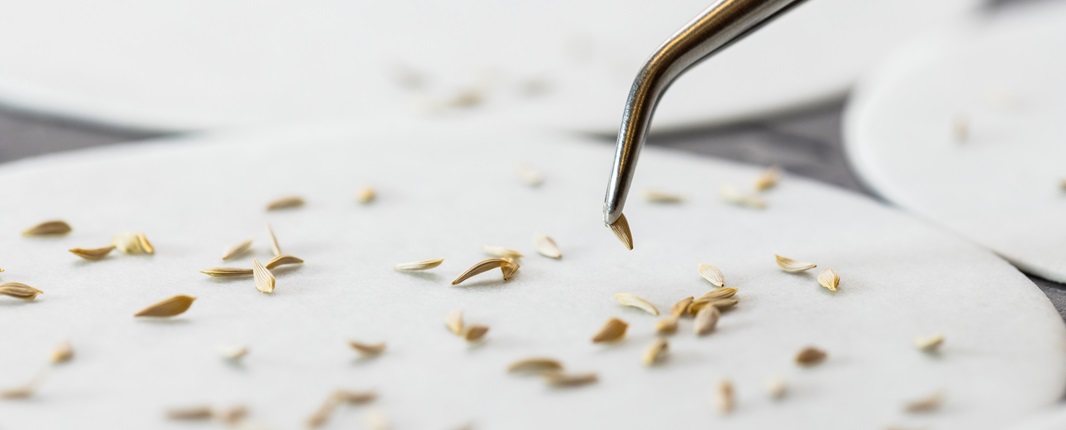
Information

Every plant on earth has a unique set of genes, of which only a small part is used for our varieties. That natural genetic diversity is our company's treasure trove. Because it contains all kinds of properties that can make our varieties even tastier, more sustainable, resilient and resistant.
That gene treasure is enormously valuable. To search for it properly and preserve the fantastic natural properties of plants, we have set up gene banks all over the world. In our own bank we have more than 80,000 'accessions'. These are bags of seeds of all kinds of varieties and wild species, which we can cross with our current varieties. Every few years, we grow new plants, which in turn provide seeds, and that's how we keep the gene bank alive and kicking.
Modern means allow us to zoom in on the genetic makeup of plants and recognize their good and not-so-good traits more and more. This makes the choice of cross parents a lot easier for our breeders. And the funny thing is, crossing with a wild species sometimes does wonders for the resilience and resistance of varieties. For instance, we have been able to make our lettuce varieties significantly less susceptible to aphids by crossing them with wild relatives of thistles and artichokes. That sounds easier than it is, by the way, because it is still quite an art to bring together only the good characteristics of one chromosome.
This has worked wonders with tomato. The aggressive Tomato Brown Rugose Fruit Virus (ToBRFV) first surfaced in 2014 and by 2018 had spread to several continents. Fortunately, in 2016 our specialists found a wild variety with high, heritable resistance to the virus. We inbred that fine trait and the rest is history. The virus was defeated, the market was happy and our high-resistance tomato varieties are shining like never before.
And all that with the help of genes from plants, which were always there to begin with. Gene-ius, right?